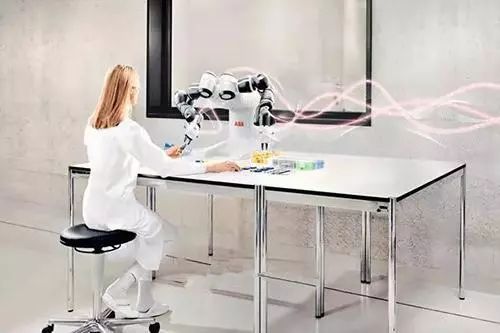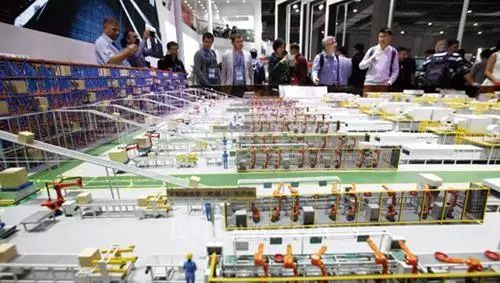Digitalization is becoming an important driving force for leading traditional industrial enterprises to achieve the next stage of growth. A cloud of the "dark battle" is opening in the industrial field, and global industrial giants such as ABB, GE and Siemens are rushing to lay out the digital industry.
ABB China Chief Technology Officer Liu Qianjin told the First Financial Reporter that starting in 2014, ABB Group has begun digital transformation. “I don’t think it’s a passive process, but a more proactive process.†Li Qingyuan, ABB’s vice president of China, head of digital business development and chief information officer, told reporters that ABB’s digital solutions are currently targeting power, industry and transportation. And infrastructure areas.
US state street analyst Wendy Zhu told reporters that looking at the future market, ABB is now less concerned about mergers and acquisitions, but is more concerned about long-term opportunities such as grid upgrades and industrial/factory automation. The shift in perspective will undoubtedly make ABB's growth more long-term, Wendy Zhu further said that electric vehicle/renewable energy-related grid investment and expansion of factory automation can drive the growth rate of the business sector higher than the relevant market GDP growth rate.

The field of power automation is by no means the strategic choice of ABB, an industrial giant, and it seems to have become the first choice for the transformation of industrial giants.
As a practitioner of the Industrial Internet, digitalization is also the highlight of GE's confidence to subvert the future of industry. At the annual conference of "Mind+Machine" on October 25, 2017, GE's new CEO Flannery and Microsoft CEO Nadella held a joint dialogue, re-emphasizing that this strategic focus will not waver. On many occasions, GE China's president Duan Xiaoyu also stressed to reporters that "the big framework for the future of GE's digital strategy will not change."
Another industrial giant, Siemens, is also accelerating the “throttle†in the power sector of the former core sector. At present, Siemens has spared no effort in promoting the digital strategy, and this represents the focus of Siemens' future strategy. The Siemens digital plant also developed the industrial software platform MindSphere. In the second half of this year, Siemens signed an agreement with China Resources Power to establish Siemens' first digital power remote operation center project in China.
Earlier, Emerson Electric announced that it would spend $29 billion to acquire Rockwell Automation. According to Emerson CEO David Farr, the industrial logic of this combination is clear, and the merger of Emerson and Rockwell Automation will be the $200 billion leader in the global automation market. However, Rockwell Automation subsequently considered the offer to be in the best interests of Rockwell Automation and its shareholders.
Rockwell Automation clearly understands its value in the future of the growing industrial automation and information market. Blake Moret, Rockwell Automation's chief executive, has previously said that the merger with Emerson will weaken rather than enhance its ability to grow in the growing industrial automation and information markets.
The giants have made their efforts in the digital industry, which is undoubtedly a "card position" for the new industry of the future. The unmanned factory is the best application scenario for these industrial giants to try the digital industry.
After reviewing the public information, the reporter found that a large number of enterprises have taken the lead in the construction of smart factories, such as Siemens, Bosch, Omron, Schneider Electric, Rockwell Automation and other international companies, as well as domestic beauty, Foxconn, Gree, Huawei. Manufacturing companies have stepped into the wave of intelligent transformation.

Gu Chunyuan, president of ABB Group Asia, Middle East and Africa, told reporters:
ABB will help companies fully automate their transformations with leading robotics and customized automation solutions, and deliver digital solutions that combine IoT, industrial big data and industry experience to take productivity and innovation to new heights Work together to create an efficient and connected future smart factory.
At the site of this year's Industry Fair, the reporter noticed that both robot companies that produce robots and other bodies are service companies that provide system industrial solutions, and even companies that supply peripheral materials and components are emphasizing industrial ecology. The concept, and the best presentation of the industrial ecological closed loop is the “unmanned factoryâ€.
According to the report “China Enterprise-Labor Matching Survey†initiated by Wuhan University, the wages of manufacturing workers in China have doubled in the past decade. At present, the labor cost in China is 4-5 times that of Southeast Asia. With the increase of labor costs, As well as the cost of research and development and maintenance of smart devices, “unmanned factories†can obviously bring long-term economic benefits to enterprises. For the industrial giants such as ABB, Siemens and GE, the subtle changes in the Chinese market may affect The company's long-term performance in the future, therefore, the development of unmanned factories with digital industrial transformation is becoming a trend.
Waterproof Open Close Current Transformer
Waterproof Open Close Current Transformer,Split Core Current Transformer,Outdoor Use Current Transformer,Low Voltage Outdoor Switching Current Transformer
Zibo Tongyue Electronics Co., Ltd , https://www.tongyueelectron.com